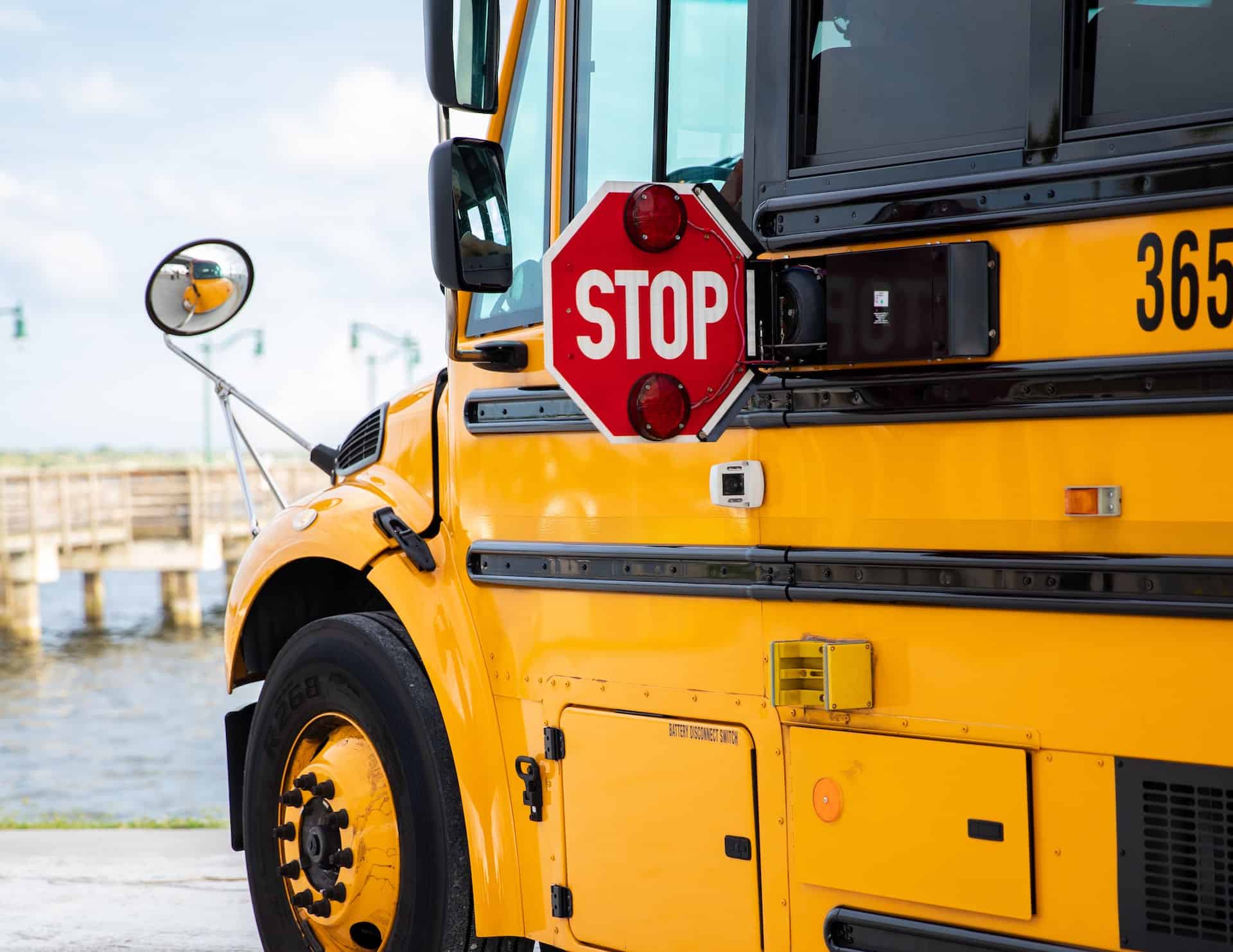The Florida Senate is progressing with a legislative proposal aimed at amending a recently enacted state law allowing the use of cameras to penalize motorists who illegally pass school buses. Despite apprehensions over a provision related to cost-sharing, the bill (SB 994) seeks to rectify the existing law, expanding the use of camera technology on buses to enhance student safety.
The legislation, sponsored by Zephyrhills Republican Sen. Danny Burgess, intends to empower charter and private schools to deploy cameras on their buses. The collected fines from violators would then be utilized to fund student transportation safety initiatives and bus driver-hiring programs. However, an amendment introduced by Burgess has stirred debate within the Senate Transportation Committee.
The contentious amendment, approved by the committee, introduces a provision allowing the companies hired by school districts to install and operate bus camera equipment to receive an unspecified portion of the fine revenue collected. Committee Chair Nick DiCeglie expressed reservations about the amendment, asserting that it deviates from the legislative intent established last year when the original law was passed, which Burgess also sponsored.
DiCeglie underscored the inconsistency with Florida’s policy for red light cameras and questioned the wisdom of revenue-sharing arrangements that could potentially incentivize increased ticketing. While acknowledging the existence of similar revenue-sharing provisions in a law permitting camera enforcement of school safety zones, DiCeglie emphasized the need for a consistent and well-considered approach to such matters in the future.

Read more:
- Diversity Prohibition in Texas Public Colleges: Effects on Students and Multicultural Organizations
- High School Athletes in Florida May Soon Benefit from NIL Opportunities
- Student Consequences Authorized for Supporting Hamas
- Student Loan Realities: The Shift from Pause to Panic for Borrowers
“I think it’s incumbent upon us as a Legislature to, in the future, decide whether we want revenue sharing for that. Let’s be consistent,” DiCeglie remarked. He emphasized the potential pitfalls associated with incentivizing activities that lead to more tickets and increased revenue, highlighting concerns that may not align with the broader legislative perspective.
Senators Jay Trumbull and Tracie Davis also expressed reservations about the revenue-sharing provision, with Davis ultimately casting a dissenting vote. Despite concerns raised during the committee session, the bill advanced with a 4-1 vote.
Burgess characterized SB 994 as a “clean-up” measure, addressing concerns and refining aspects of the legislation passed last year. The original law allowed the enforcement of school bus stop signs through camera technology and mandated larger and more visible signage on the vehicles.
Last year’s legislation faced opposition from some Republican Senators and Representatives who contended that it resembled controversial red light camera systems. Spring Hills Sen. Blaise Ingoglia and other detractors argued that the proposal raised concerns similar to those associated with red light cameras.
Surveys conducted by the Florida Department of Education revealed a compelling need for stronger enforcement measures, as evidenced by reports from bus drivers. In just one day in 2022, bus drivers reported an alarming 7,687 instances of motorists illegally passing buses. The figure rose to 11,224 incidents in the subsequent year, underscoring the urgency of addressing the issue through enhanced legislative measures.
SB 994 is slated for two additional committee reviews before reaching the Senate floor. The House companion bill (HB 1045), sponsored by Jacksonville Republican Rep. Kiyan Michaels, is undergoing a parallel legislative process in the House. As Florida lawmakers navigate the intricacies of school bus camera legislation, the focus remains on striking a balance between enforcing traffic safety and addressing concerns related to revenue-sharing arrangements.

